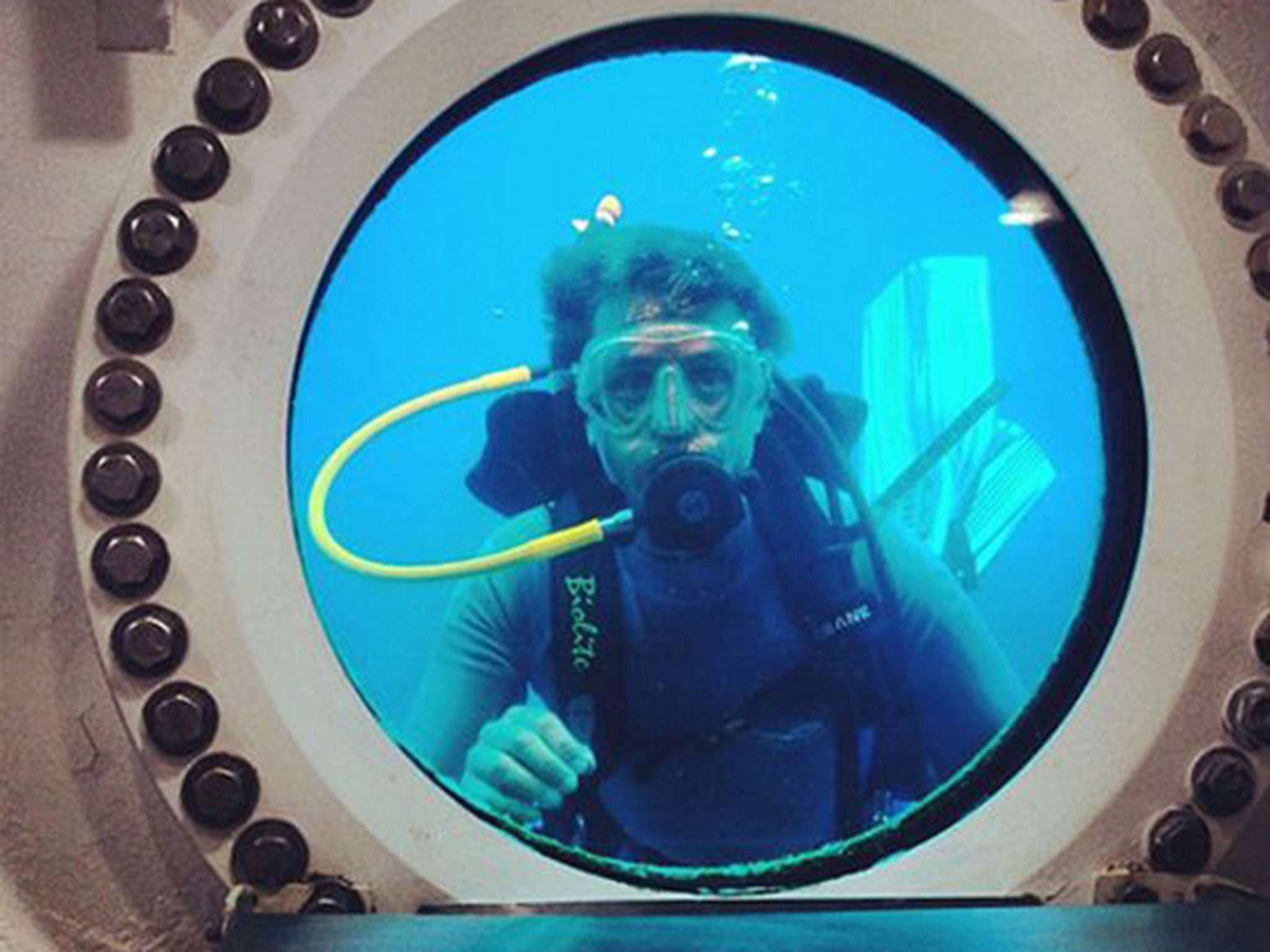Page 3 Profile: Fabien Cousteau, oceanographer

Following in the watery footsteps of his grandfather?
Yes, the grandson of the legendary 20th century oceanographer Jacques-Yves Cousteau has begun a mission to surpass his famous relative’s record for the longest time spent in an underwater lab by a human. Fabien Cousteau, 46, will try to spend 31 days beneath the ocean in a 13m-long laboratory named Aquarius off the coast of Florida, to beat the 30 days achieved by his late grandfather.
Is he just fishing for compliments or is there a point to the record attempt?
He will work alongside other scientists to study the behaviour of fish, climate change and pollution among the coral reefs. The crew are going to use new technology that will create 3D videos to gather data about the fish without any of the disruptive lights that can put them off. But as Fabien admitted: “There are a lot of challenges physically and psychologically,”
I bet his grandfather was quite an inspiration.
Jacques Cousteau first set the record for the longest time a human had spent underwater in 1936, off the coast of Sudan. He developed underwater living experiments, and is remains famous to this day, inspiring the movie The Life Aquatic starring Bill Murray. But Fabien has emphasised that this is not just family business, saying that an interest in the oceans is something we should all care about, as climate change threatens to disrupt life on land as well.
Is the place he’ll be staying a real dive?
Actually the undersea lab, which is named Aquarius, sounds pretty good. The 400 square-foot pressurized lab has six bunk beds and even has an internet connection, where the crew will be broadcasting a live feed, and air conditioning.
When’s he expected to resurface?
If all goes to plan, Mr Cousteau will return to dry land on July 2, which would hail the end to the longest mission held at the lab since it began operations in 1993.
Join our commenting forum
Join thought-provoking conversations, follow other Independent readers and see their replies
Comments
Bookmark popover
Removed from bookmarks